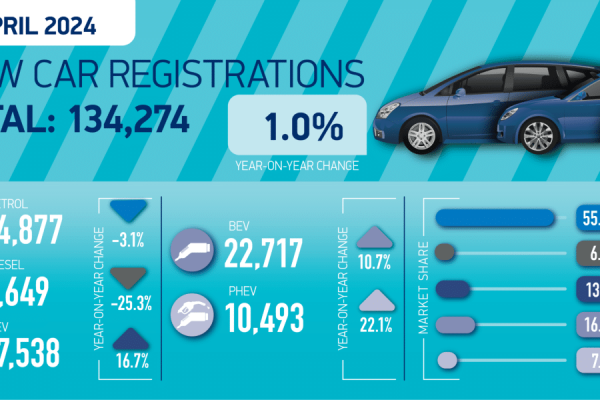More than 5 million cars were were acquired on contract in the UK between October 2020 and September 2022, accounting for 15% of all licensed cars, but within these contracts, the hidden chargers for going over on your mileage can incur a sizable fee, even more so for business fleets.
Fleet management specialists Wessex Fleet has analysed internal data and estimated that nearly a quarter of vehicles are set to exceed their agreed mileage. It examined the number of drivers who purchased their car on finance between 2020 – 2022 and discovered businesses across the UK are set to pay up to £1.6bn for excess mileage charges.
Drivers could pay nearly £9k if they go over their mileage terms
Analysing internal mileage data, Wessex Fleet found that 24% of company car drivers are on target to breach their mileage limits and incur excess mileage charges.
The expected charge for each of these drivers, based on a fee of 32p per mile above the pre-agreed limit, is a staggering £8,981. Multiplying that by the 719,900 cars bought on business finance and the above proportion of at-risk drivers means up to £1.6 billion pounds is payable when current agreements end. Including agreements started before and after October 2020-September 2022 could increase that figure further.
Companies with 100-strong fleets face charges of more than £1m
The average estimated excess charge is also likely to worry companies managing business fleets. Applying the £13,796 estimate (an average of the estimated excess mileage charges for cars and vans over their mileage) to each vehicle in a fleet, the total charge could have a devastating impact.
Appointed Representative Opportunities with Wessex Fleet
Have you thought about growing your broker business? Are you looking for opportunities for growth? Then why not consider joining Wessex Fleet as an Appointed Representative?
Keeping you on the move with leasing solutions tailored to your needs
Leasys is the proud Contract Hire partner of the Stellantis brands, offering mobility solutions from medium and long-term rentals to management systems for company fleets.We work with Brokers to support all their customers requirements.
Accelerate your business with QV Systems & Leaselink
Unlock unparalleled efficiency in vehicle procurement with QV Systems’ Accelerate, now seamlessly integrated with Ebbon Automotive’s Leaselink. Tailored for brokers and funders, this integration streamlines the entire process from quote to delivery, empowering you to effortlessly source and order vehicles for your clients.
Average excess mileage charge for fleet vehicles over the mileage limit:
| Number of fleet vehicles over the agreed mileage | Estimated excess mileage charge at contract end |
| 1 | £13,796 |
| 10 | £137,960 |
| 50 | £689,800 |
| 100 | £1,379,600 |
*Calculations based on an excess mileage charge of £13,796 per vehicle, which is an average of the figures for cars (£8,981) and vans (£18,611).
Fleets of only ten are looking at the best part of £140,000 in charges, while those with 100 vehicles are facing a potential bill of £1.4m.
Small- and medium-sized entreprises (SMEs) – those with less than 250 employees – account for 99.9% of UK businesses and make a median profit of roughly £312,000 per year. If even a fraction of those employees drive business vehicles beyond the mileage limit, and the company is liable for the excess charges, there could be serious financial implications.
Three Tips to Manage Your Mileage and Avoid Extra Charges
- Pick a realistic mileage limit
The ultimate preventor is setting a realistic mileage limit before signing a lease agreement. Underestimating may save you money on monthly payments, but excess mileage charges could undo the benefit. It’s worth overestimating so that you have more leeway from the off.
- Try to drop your mileage if you initially go over
Some months or years you may drive more than others, but it could then average out across the term. For example, if you’re one year into a three-year deal and have driven more miles than the yearly mileage limit, you could lower your mileage in years two and three so that your overall mileage doesn’t breach the total mileage limit – which is calculated by multiplying the yearly limit by the duration of the agreement in years.
- Consider a mileage adjustment with your provider
This will likely increase monthly payments but it could help you avoid costly excess mileage charges when the vehicle is returned, as the total limit will be higher.
Simon Naylor, Director at Wessex Fleet, added: “With many businesses making use of company cars again following the pandemic, we are starting to see an increase in mileage around the country.
“To avoid excess mileage charges, it’s always best to overestimate before signing a contract. If you’re in the middle of a term and are already close to or beyond the limit, however, a mileage adjustment may be the best option. This may cost more per month, but it could be more manageable than one large excess charge at the end of a contract. According to our research, getting a hold on your company’s mileage can save hundreds of thousands of pounds, or even millions for larger fleets, each year.”



















